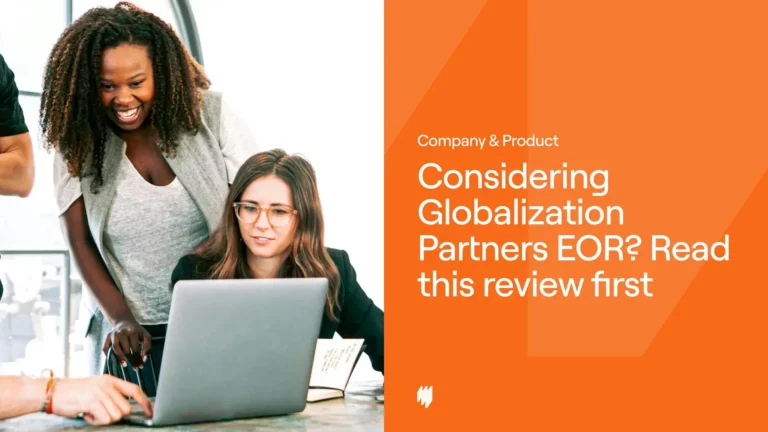There is a deep schism between employees and employers regarding the metaverse. According to a recent ExpressVPN study, nearly 80% of employers were interested in experimenting with the metaverse, but only 57% of employees showed the same excitement.
And it’s not surprising because the expectations from the exciting new realm of technology are like chalk and cheese.
For employers, the metaverse represents the next big opportunity. From capturing markets and building brands to adding social capital and saving money — the metaverse is like the Cave of Wonders which Alladin is coaxed into entering.
For the employee, the metaverse at work could be a means for more inclusive and collaborative hybrid work.
However, the ‘meta-depths’ can contain many more secrets or, worse, be more sinister. It could mean monitoring employee behaviors and even movement. It could mean new avenues for fraud, harassment, and other nefarious activities. It could mean being ready for what we don’t know is coming.
This is why metaverse compliance will come as the final frontier.
The Need to Regulate the Metaverse
Even if it wasn’t by design, the new workspace has really been transformed. But don’t get comfortable yet. There’s more upheaval on the way, and the metaverse leads the way.
Remote and hybrid work is great for work-life balance, but as Flo Crivello, founder and CEO of Teamflow, told ebn: “It’s become universally understood that it’s missing something. It has become harder to collaborate, harder to be social with people. The whole thing has become very formal and transactional.”
Technology has grown leaps and bounds these past couple of years, enabling better collaboration. But it has also led to more micromanagement and breaches of privacy because companies are still unsure about how to track work and performances when not sitting across each other.
To get around this, employers are resorting to tactics that include screen monitoring and capture, tracking log-in, active and log-out times, and even surreptitiously accessing emails, messages, and calls.
Employee monitoring is not an entirely new idea. From factories to financial institutions, employers have used surveillance in different guises. However, with the metaverse, there is scope for it to become more clandestine and harmful.
Meeting, collaborating, brainstorming, and eventually being productive in an entirely made-up universe would not be a walk in the park. But to enable this, regulations must be in place to ensure that the information and access available are not misused.
Employers can abuse advanced functions to capture eye movement and gauge whether employees were really paying attention during a meeting. The metaverse allows anyone to be anyone, so anonymity will be another major obstacle for companies to tackle.
The biggest risk is the looming threat of financial fraud. The opportunity to make a quick buck without having to reveal one’s true identity could lure fraudsters by the hundreds.
What’s worse? We are not even close to imaging the kind of fraud and harassment the metaverse could unleash upon us.
As time passes, the metaverse will start to mirror real life. But an un- or incompletely regulated metaverse could trigger extreme and nerve-wracking experiences, impacting employee mental health. Measures to ensure the effective curbing of fake news, abuse, radicalization, identity theft, etc. will take a lot of time and research.
Full transparency, trust, and accountability are critical for a complicated concept like metaverse to operate as a key part of work.
What Regulators Should Be Thinking About
This may sound like a buzzkill, but regulators must follow the ‘rules help control the fun’ mantra.
Placing a blind focus on trust could lead to severe repercussions for employees and employers.
The metaverse has taken concrete steps toward becoming an important part of the corporate future. However, it is disconcerting that there are still no answers to some of the biggest problems plaguing today’s social media channels.
For example, how can companies root out fake news? Or where to draw the line regarding free speech and spewing hatred?
From an employer’s point of view, they have to figure out how to counter issues of privacy, taxation, patents, data, and copyright breaches when they embrace the metaverse.
Mere extensions to include the metaverse into current privacy regulations may only be effective to a certain extent. Current GDPR standards dictate that organizations take only necessary employee data, but this might change with the metaverse. There could be a marriage of professional and personal lives, which requires clear lines drawn to dictate what aspects of privacy data companies are privy to.
People profiles are another necessary compliance aspect. Fake, ghost, or anonymous profiles can unleash chaos on even the most robust systems. Identity thefts have to be guarded against too.
While incumbent privacy and security data laws could expand to include the metaverse, handling biometric data will need careful consideration.
For employers, copyrights, patents, trademarks, and property rights are all important aspects that need well-defined guardrails that are not subject to different interpretations. Cybersecurity aspects will need to be thorough as well.
Most of all, all these laws must adapt to a rapidly changing ecosystem.
Always Keep Eyes on the Future
There is no way to tell how many different innovations will flood the metaverse once it becomes more mainstream. This opens the doors for patents, copyrights, and intellectual property rights disputes.
Take a company’s potential innovation forum, for example. Who owns the final product showcased? The owner, the company, or the host? Or who gets the music rights when a company decides to host a private concert for its employees?
Regulation of conduct in the metaverse will require strict compliance. Despite the best efforts, the failure of social media channels to curb major issues like harassment, abuse, stalking, trolling, and intimidation has made it a festering ground for hate and hate-fuelled agenda. The metaverse must not walk that same path.
There could be different nationalities, languages, and people from different cultural backgrounds in one virtual meeting room. There are chances that thoughts and words could be misinterpreted or translated incorrectly, which is why regulations and sensitivity training take high priority in the metaverse.
All these aspects must be covered before an employer decides to dive into the metaverse along with his employees.
A Global, Equitable Platform
The metaverse is, in many ways, still a baby. And it is slated to alter the way we work. A world without boundaries could provide users the unlimited potential to learn, see, do, experience, and achieve more.
Talent, for one, will be more spread out and accessible than ever. With the metaverse enabling societal and physical connections much as offices did, companies will be emboldened to look beyond traditional talent centers.
Some or most parts of the interview process will move to the metaverse. The same can be said for onboarding, training, and education.
But all of these are equally vulnerable if companies jump the gun too quickly and regulators fail to put the right fences in place.
It’s not easy to keep up with the pace of technological advancements, but regulations mustn’t come as a reaction to an unsavory incident.
Healthy regulations will form the building blocks of a vibrant and productive meta-culture for employees, so it’s important to get them right. If builders and employers take proactive steps to create a comprehensive code of conduct for the metaverse, that vast schism between employees and employers will eventually be a blur.







